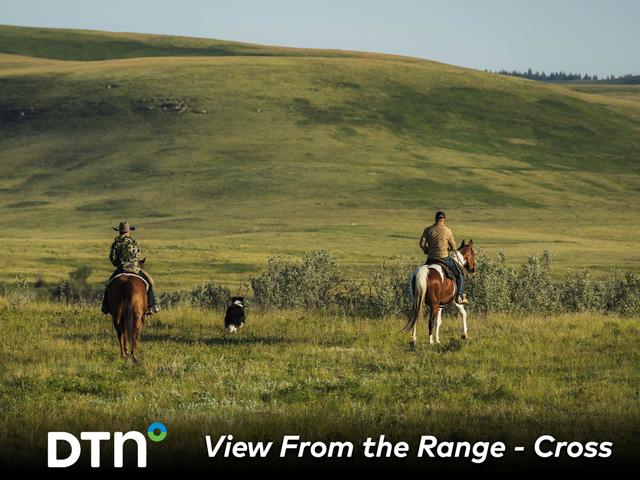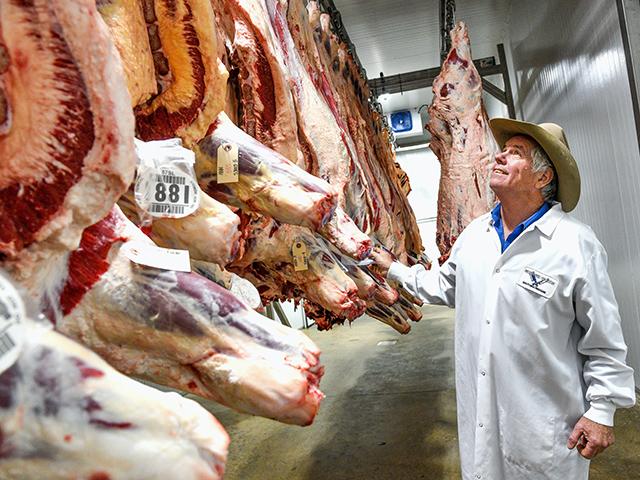Challenges of Starting or Expanding a Small Packing Plant
Small Packers Persevere
Joseph Egloff thought the biggest challenge would be getting the money. He was wrong. The money was the easy part. The bureaucracy and the red tape were the most difficult obstacles this Forsyth, Georgia, cattleman faced in starting a small packing business.
Egloff backed into the packing business like a lot of other producers today: He needed a place to harvest his own cattle. A friend of a friend owned a small restaurant in nearby Macon and wanted to feature locally raised, grass-fed burgers. The opportunity was obvious.
It was 2010, and even though Egloff only had eight cows and 25 rented acres of pasture, he harvested and processed a bull, and started selling direct.
"I sold 6 pounds of ground beef for cash at the farmers' market, and a lady wrote me a check for 2 pounds. That was $42 for 8 pounds of ground beef in a day. The same day, I delivered 100 pounds of ground beef to my friend's restaurant," Egloff recalls. He was hooked on the idea of selling direct.
But, like most things, there were challenges. It was a two-hour haul to the nearest packing plant. And, even pre-COVID, open slots for processing were hard to come by. Egloff started thinking more and more about the small packing plant he grew up around in Mississippi, wondering if a similar business would work today.
In 2017, he attended a seminar targeted toward farmers who wanted to add value to their products. Representatives from the University of Georgia Small Business Development Center were there, and they helped Egloff write a business plan and a budget for his idea. He sketched together plans for the plant, on a napkin no less, and then begged and borrowed the $1,000,000 he needed to take his dream to reality.
ZONING HURDLES
Egloff planned to put the new processing plant on his own farm, now 150 acres. He wanted to go back and forth between his growing cattle operation and the harvest facility, as needed. The site was already zoned agricultural, so all he thought he needed was a conditional-use permit, the same type of permit he'd need for a poultry house or a milking parlor.
In 2018, he started site prep and went to the county commissioners for the building permit. It was a firm no-go.
Whether it was small-town politics, hard feelings because he bought the farm before it went into foreclosure or a case of "Not in My Backyard," Egloff says the commissioners kept his plans on hold for close to four months. When he did receive permission to start building, it came with a number of restrictions. And, in January 2019 while he was building, they shut him down for nine months because of a water dispute. All the while Egloff was paying interest on his notes.
P[L1] D[0x0] M[300x250] OOP[F] ADUNIT[] T[]
OPENING DAY
Finally, in September 2020, Egloff's processing business, MidSouth Packers, opened. It was completed with several concessions.
The commissioners only allowed an 8,000-square-foot building. They limited intake to 35 head a week, a number that was eventually raised to 45 to 50 head, and stipulated no hogs could be processed.
"Fifty head is our sweet spot," Egloff explains. "Our guys are working as hard as they can, and that's about all they can get cut up."
The commissioners also said he could only accept animals before 9 a.m.
Egloff says they've learned plenty during the entire process. His assistant, Tracy Marshall, stresses, "If you're thinking about building a plant, go to the county first. We did it backwards."
Egloff thinks the more business-minded commissioners realized the plant would be good for the local economy, and they were on shaky ground legally by restricting his business. However, that didn't keep them from rejecting his plans for a small smokehouse. As a result, he has to take his specialty meats to Centerville, Tennessee, for smoking.
WATER AND LABOR ISSUES COMMON
It wasn't contentious, but North Carolina packer-processors Larry and Donna Moore also ran into water challenges when they started their packer business.
In 2014, the couple bought an older facility in Gibsonville, which uses a lagoon for wastewater. In 2016, when they made the decision to expand, the increased water volume wasn't available, and expanding the lagoon wasn't possible because of state restrictions.
They made the Gibsonville location a harvest-only facility, bought a building in Asheboro, completely gutted it and moved their offices and processing there. Although the two facilities are an hour apart, they make it work. "We use city water and sewer in Asheboro," Donna Moore explains. "We don't have any more waste than you would in the back of a grocery store."
Beth Doran, Iowa State University Beef Program specialist, isn't surprised water is a challenge faced by new or expanding packers. "Water may become our most scarce resource in the future. It takes a lot of water to process beef. The plant has to be sanitized, rinsed and cleaned. After that, the wastewater has to be handled appropriately to protect the environment."
Labor is another ongoing challenge. "You don't hire somebody off the street to cut up a carcass," Doran says. "It is an added expense to train a new worker."
The Moores meet the labor challenge with their own training program. Larry Moore gives full credit to his wife, Donna, for the idea.
"From beginning to end, it takes 12 to 18 months to take an unskilled laborer and turn them into a skilled meatcutter," he says. "To keep them in that program to begin with, their productivity does not match what you pay them. So, you are truly investing in that employee and the opportunity. You hope you're going to be able to keep them long term and turn them into a highly skilled, proficient, productive meatcutter."
Donna Moore adds, "We started this program in 2021, and we've only lost one employee. We also offer a bonus to our existing employees if they bring in a new employee, and they stay six months. So, there's incentive for employees to find other people to come work."
In Georgia, Egloff was fortunate to find skilled meatcutters to train the rest of the crew. And, he relies on the golden rule to help keep them.
"We try to treat employees like we want to be treated," he says. They pay an average of $22 an hour, almost double the average wage in Monroe County. Egloff adds he's financed three vehicles for employees and gives them free beef from his cattle operation.
Despite the challenges, both the Moores and Egloff are thriving. The Moores have increased production from 3,000 to 6,000 animals a year, including cattle, hogs, sheep, goats and the occasional bison.
Egloff has paid off significant credit card debt and a personal loan he took out to build the facility. In addition to the Brahman-cross cattle from his own Rocking Chair Ranch, he harvests and processes cattle from Alabama, Florida, Mississippi, North Carolina, South Carolina and Tennessee.
"It's been a good feeling. We've helped more people get their product to the table," he says. "I don't think a lot of people expected me to survive. But, they don't know how much want-to this ol' boy's got. I couldn't afford not to make it."
[PF_0523]
(c) Copyright 2023 DTN, LLC. All rights reserved.



